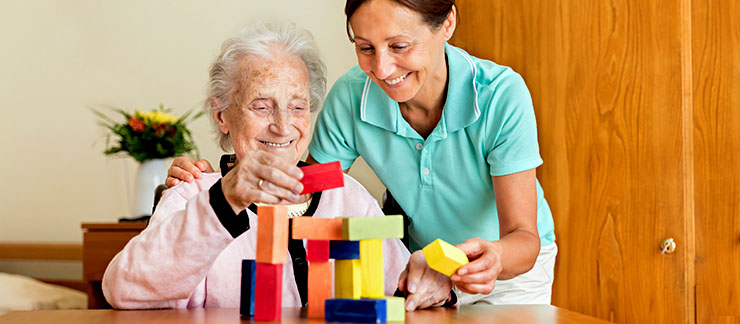Finding the Right Charlotte Care Home: An Overview to Choosing the Best Environment
Finding the Right Charlotte Care Home: An Overview to Choosing the Best Environment
Blog Article

Comprehending Mental Deterioration Treatment: An Overview for Loved Ones
The intricacies of dementia care call for a nuanced understanding that extends past standard knowledge of the problem itself. For loved ones, identifying the early signs and symptoms and carrying out effective interaction strategies are critical in promoting an encouraging setting. Additionally, caregivers should not forget their own health, as it significantly influences their capacity to give compassionate care (memory care facilities charlotte). As we discover these important parts, it ends up being obvious that the journey of recognizing mental deterioration treatment is not practically the private influenced, but likewise concerning the complex characteristics that form their partnerships and experiences. What understandings can change this journey?
What Is Mental deterioration?
Dementia is a collective term that includes a variety of cognitive impairments characterized by a decline in memory, thinking, and social capabilities extreme sufficient to disrupt every day life. It is not a certain illness however rather an umbrella term that consists of various sorts of cognitive problems, with Alzheimer's condition being the most common. Other types consist of vascular mental deterioration, Lewy body mental deterioration, and frontotemporal dementia, each with distinct features and underlying reasons.
The onset of mental deterioration commonly includes gradual cognitive decline, affecting the individual's capacity to execute daily tasks and engage meaningfully with others. These impairments can show up as troubles with interaction, analytic, and judgment. As dementia advances, people may experience adjustments in state of mind and behavior, which can additionally complicate their treatment and social communications.
Recognizing dementia is essential for households, caregivers, and medical care experts to give suitable support and interventions. Early medical diagnosis and intervention can help take care of symptoms and improve the top quality of life for those impacted. Furthermore, it cultivates a much deeper understanding of the challenges faced by individuals with mental deterioration, highlighting the importance of compassionate care and support throughout their trip.
Recognizing the Signs And Symptoms
Identifying the signs of dementia early is important for efficient treatment and support - memory care charlotte. Mental deterioration incorporates a range of cognitive disabilities that can manifest in numerous ways, often hindering daily performance and top quality of life. Usual very early symptoms include memory loss, especially neglecting recent events or discussions, which might at first be dismissed as normal aging
As the condition proceeds, individuals might exhibit problems with analytical, preparation, or finishing familiar jobs, such as managing finances or following a recipe. Confusion about time or place typically arises, resulting in disorientation and anxiousness. Modifications in mood and habits are likewise considerable indicators; people might become withdrawn, irritable, or exhibit passiveness in the direction of activities when taken pleasure in.
In addition, difficulties in language can surface, showing up as problem in finding the right words or complying with conversations. Acknowledging these signs early can assist in prompt clinical evaluation and care preparation. It is vital to approach these monitorings with level of sensitivity and understanding, as they can be upsetting for both the specific and their loved ones. Motivate attention to these indicators can cause better end results and assistance for those affected by mental deterioration.
Effective Interaction Approaches

Non-verbal cues play a vital function in communication. Maintaining eye contact, using ideal face expressions, and employing motions can aid convey your message extra he has a good point properly. Furthermore, producing a distraction-free setting can further help with purposeful communications.
Active listening is vital; give the individual sufficient time to respond without interrupting. Validate their experiences and feelings, which cultivates trust and urges open discussion. When discussing familiar subjects or memories, make use of prompts to direct the discussion, helping them really feel involved and valued.
Finally, be prepared to adapt your technique based on the individual's existing cognitive state. Versatility in communication methods makes sure that you stay connected, reinforcing the value of your connection. By applying these approaches, you can develop a helpful ambience that urges positive interactions with people impacted by mental deterioration.
Producing a Supportive Environment
Creating a helpful atmosphere is crucial for enhancing the top quality of life for people with mental deterioration. This atmosphere must focus on comfort, familiarity, and safety to decrease anxiety and confusion.
Incorporating regimens can offer a sense of security. Foreseeable schedules help individuals with dementia recognize what to anticipate throughout the day, thus minimizing feelings of disorientation. Personalizing the home with acquainted items, pictures, and tokens can evoke favorable memories and create a feeling of belonging.
In addition, take into consideration the sensory elements of the environment. Soft colors, relaxing scents, and gentle sounds can contribute to a tranquil environment. Equilibrium excitement to stay clear of frustrating the person; quiet areas for relaxation need to complement extra energetic rooms for social communication.
Self-Care for Caregivers
Supporting individuals with dementia needs not only a well-structured atmosphere yet also focus to the well-being of caretakers. Caretakers frequently face emotional, physical, and psychological difficulties that can lead to exhaustion if not properly addressed. Prioritizing self-care is essential to preserve their health and effectiveness in providing care.
First, caretakers must establish a normal regimen that includes time for personal activities and leisure. Taking part in pastimes, workout, or merely walking can significantly alleviate tension. It is important to keep a balanced diet regimen and make certain appropriate rest to improve physical resilience.
Furthermore, caregivers should look for click resources social assistance. This can be achieved by joining support system, involving with pals, or speaking with relative concerning their experiences and sensations. Such links help caretakers feel less separated and provide valuable emotional electrical outlets.
Last but not least, caregivers ought to not wait to seek professional aid when needed. Consulting mental health and wellness professionals can help in developing coping methods and supply devices for taking care of the emotional toll of caregiving. By actively practicing self-care, caregivers can enhance their health, ultimately benefiting both themselves and the individuals they take care of.
Verdict
In verdict, recognizing dementia treatment is critical for enhancing the high quality of life for individuals influenced by this problem. In addition, focusing on self-care for caregivers ensures their well-being, inevitably benefiting both caretakers and those obtaining treatment.
As we explore these vital elements, it becomes obvious that the journey of recognizing mental deterioration treatment is not simply concerning the individual impacted, yet also about the elaborate dynamics that shape their connections and experiences. Various other types include vascular dementia, Lewy body dementia, and frontotemporal dementia, each with distinct features and underlying reasons.
As dementia progresses, individuals might experience changes in mood and behavior, which can additionally complicate their care and social interactions.
Furthermore, it fosters a deeper understanding of the difficulties faced by people with dementia, highlighting the relevance of caring treatment and assistance throughout their journey.
In conclusion, recognizing dementia care is critical for boosting the top quality of life for individuals influenced by this condition. (charlotte care home)
Report this page